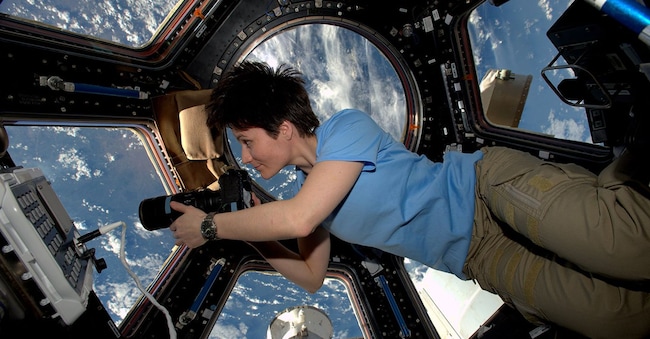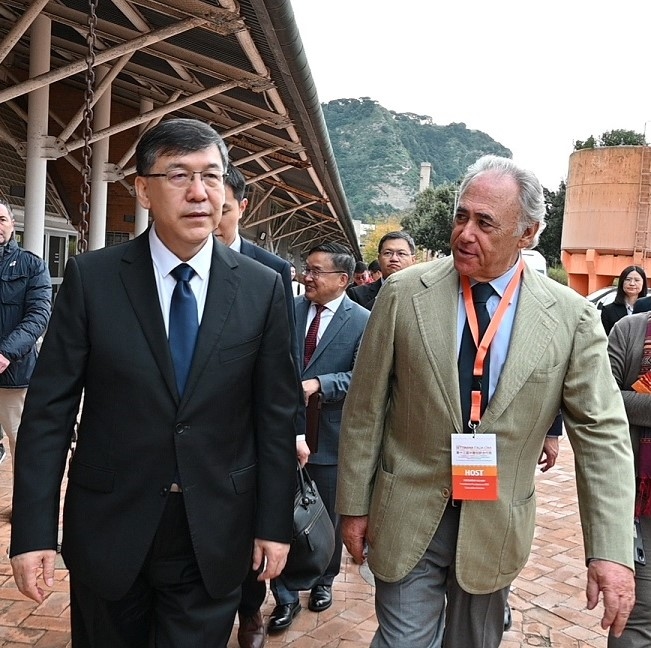"Cargo shuttle to the Space Station, crucial for Europe"


"The Leo Cargo Return Service mission, with which we are developing a European service for transport to and from the International Space Station (ISS), absolutely must launch by mid-2029," says ESA astronaut Samantha Cristoforetti in an interview with Il Sole 24 Ore in Rome, also attended by Daniel Neuenschwander, Director of Human and Robotic Exploration at the European Space Agency (ESA).
Cristoforetti participated in two missions to the ISS, Futura in 2014, and Minerva in 2022, and is the first European to both serve as commander and complete an EVA (extravehicular activity) in outer space. Her example has motivated many young women to apply for the final selection process for European astronauts in 2022.
We are approaching the Ministerial Meeting on November 26 and 27 in Bremen, Germany, where the space ministers of ESA member states will decide on the future plan for the next three years. There's a lot of talk about money, because ultimately that's the "fuel," but above all, they'll be deciding what course Europe should take in the great space economy race. Europe is currently seen as lagging behind other global players, but it has great potential, thanks to large national companies and many innovative startups.
Regarding the Leo Cargo Return Service mission, already approved by the previous ministerial meeting in 2022, Cristoforetti is very firm and precise that it is fundamental for a point she considers vital: "guaranteeing Europe an autonomous transport capacity in low orbit."
The date is the key point: mid-2029, given that the ISS will be decommissioned by 2030 and will end up submerged at the “Nemo” point, in the middle of the ocean between Chile and New Zealand.
"Using the ISS as a testbed is crucial for us, to demonstrate that our cargo ship is working perfectly. We want to go there because we know the environment well; we've been there. It's truly a vital step," Cristoforetti emphasizes, adding that Thales Alenia Space and the European startup The Exploration Company are currently working on the project, with an initial contract. The financing model is also new for ESA: private investors will participate 40%. "The real goal is to be ready for the post-ISS era. We think there will be a low-orbit ecosystem with various platforms to reach and service before returning to Earth."
Leo Cargo Return Cargo Service is indeed an ambitious challenge, especially with 2029 just around the corner, but it is also essential to ensure that Europe can maintain its sovereignty in access to space, a point both interviewees reiterate several times.
Even the choice of rocket that will carry the Leo Cargo Return into orbit is left to the company that wins the service, assures director Neuenschwander, as long as there is no surcharge. "For the size of this project, what we need is an Ariane 6-class launcher," Europe's largest launcher, but it could also be another supplier, which is also a novelty. In short, this is an experimental project outside of the regional return policy.
Europe's positioning
Europe is currently at the forefront of Earth observation with Earth observation programs like Copernicus, or in geo-positioning with Galileo, both directly funded by the European Commission, but "it is crucial that we move to the next step today. Space exploration will be done with or without Europe, and increasingly so, for reasons including, but not limited to, economic ones."
There was also talk of a European strategic vision for space exploration, and the European Space Agency is aligned, in this field, on three pillars: towards low-Earth orbit, on lunar programs, with the development of a European lander, and on the return to Mars, with the second phase of the Exomars program, stalled for years due to the Russian-Ukrainian war. This program itself demonstrates how challenging it can be to regain the technological autonomy necessary for such complex and important exploration missions.
"Space exploration makes sense if and when we reach a certain level of capability that allows us to propose and address new challenges," Cristoforetti concludes, implicitly reiterating that we are at a turning point, while Neuenschwander drives home the point with a charming comparison: "We need to sit at the table of the Space Economy and not be on the menu."
News and insights on political, economic, and financial events.
Sign upilsole24ore





